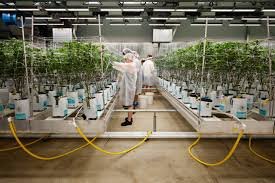
California’s cannabis industry offers unique opportunities for those looking to engage in large-scale cultivation. With the right license, individuals and caregivers can legally grow 99 plants, far exceeding the standard cultivation limits. This comprehensive guide will walk you through the process of obtaining the necessary license, understanding eligibility criteria, and following best practices to ensure successful and legal cultivation.
Understand the 99 Plant License
What is a 99 Plant License?
A 99 plant license in California is a special permit that allows for the legal cultivation of up to 99 cannabis plants. This license is especially beneficial for medical marijuana patients, caregivers managing multiple patients, and commercial growers who require more than the typical cultivation limits. The license provides a legal framework for larger-scale cultivation, ensuring compliance with California’s strict cannabis regulations. The 99 plant license is a special permit that allows individuals in California to legally cultivate up to 99 cannabis plants, primarily for medical purposes. This license is particularly beneficial for patients who require a larger quantity of cannabis than the standard cultivation limits allow, as well as for caregivers who manage the needs of multiple patients.
Who is Eligible for a 99 Plant License?
Medical Necessity
Eligibility for a 99 plant license often depends on demonstrating medical necessity. Applicants typically need a recommendation from a licensed physician, who must confirm that the patient’s medical condition requires more cannabis than what is permitted under standard cultivation limits. This license is particularly useful for patients who need a larger supply of cannabis to manage chronic or severe health conditions.
California Residency
To apply for a 99 plant license, you must be a legal resident of California. Proof of residency, such as a state-issued ID, driver’s license, or utility bill with a California address, is required as part of the application process. This residency requirement ensures that only those legally residing in California can cultivate up to 99 plants.
Background Check
In some jurisdictions, a background check may be part of the licensing process. This step is intended to ensure that the applicant does not have a criminal record that could disqualify them from obtaining a license. A clean background helps maintain the integrity and safety of the cannabis industry in California.
How to Apply for a 99 Plant License
Step 1: Gather Required Documentation
Before applying for a 99 plant license, make sure you have all the necessary documentation. This typically includes:
A medical recommendation from a licensed physician (if applying under medical necessity).
Proof of California residency.
Background check clearance, if applicable.
Step 2: Submit Your Application
Licensing Authority
Applications should be submitted to the California Department of Cannabis Control (DCC) or the relevant local authority responsible for overseeing cannabis cultivation licenses. Local regulations may vary, so it’s important to check with your local jurisdiction to understand the specific requirements.
Completing the Application
Fill out the application form carefully, ensuring all required documents are attached. Pay any necessary application fees, which may vary depending on your location and the specifics of your application. Double-check all information to avoid delays in processing.
Step 3: Await Approval
Once submitted, your application will be reviewed by the licensing authority. This review process can take several weeks to months, depending on the complexity of your case and the workload of the authority. During this period, the authority may request additional information or clarification. Timely responses to these requests can help expedite the process.
Step 4: Comply with Local Regulations
Zoning Laws and Location Requirements
Ensure that your cultivation site complies with local zoning laws. Some areas in California have specific zones where cannabis cultivation is permitted, while others may impose restrictions. Understanding and adhering to these zoning regulations is crucial for maintaining your license.
Security Measures
Implement robust security measures to protect your cultivation site. This includes installing fencing, surveillance cameras, and secure storage facilities. Strong security not only protects your crop but also ensures compliance with legal requirements.
Environmental Regulations
California has strict environmental regulations for cannabis cultivation, including water use, pesticide application, and waste disposal. Following these guidelines helps minimize the environmental impact of your cultivation activities and ensures that your operation remains legally compliant.
Step 5: Maintain Compliance
Regular Inspections
Expect regular inspections from state and local authorities to ensure ongoing compliance with all regulations. These inspections are a routine part of maintaining your license and operating legally.
Record Keeping
Maintain detailed records of your cultivation activities, including plant counts, harvests, and sales. Proper documentation is essential for transparency, legal compliance, and the smooth operation of your cultivation business.
Best Practices for Growing 99 Plants
Optimize Growing Conditions
To maximize yield and ensure the health of your plants, focus on optimizing growing conditions. This includes controlling lighting, temperature, and humidity levels, as well as using nutrient-rich soil or advanced hydroponic systems.
Integrated Pest Management (IPM)
Implement Integrated Pest Management (IPM) techniques to manage pests sustainably. This approach involves using natural predators, biopesticides, and other environmentally friendly methods to protect your plants without harming the ecosystem.
Stay Updated on Industry Trends
The cannabis industry is constantly evolving, with new laws, regulations, and best practices emerging regularly. Stay informed by attending industry workshops, conferences, and joining local cannabis associations. Keeping up-to-date with the latest developments helps you maintain compliance and optimize your cultivation efforts.
Conclusion
Securing a license to grow 99 plants in California opens up significant opportunities for large-scale cannabis cultivation. By following the steps outlined in this guide, you can navigate the application process, meet all legal requirements, and ensure that your cultivation operation is both successful and compliant with state laws. Whether you are a medical patient, caregiver, or commercial grower, the 99 plant license provides the legal foundation needed to expand your cultivation capabilities in California’s thriving cannabis industry.



